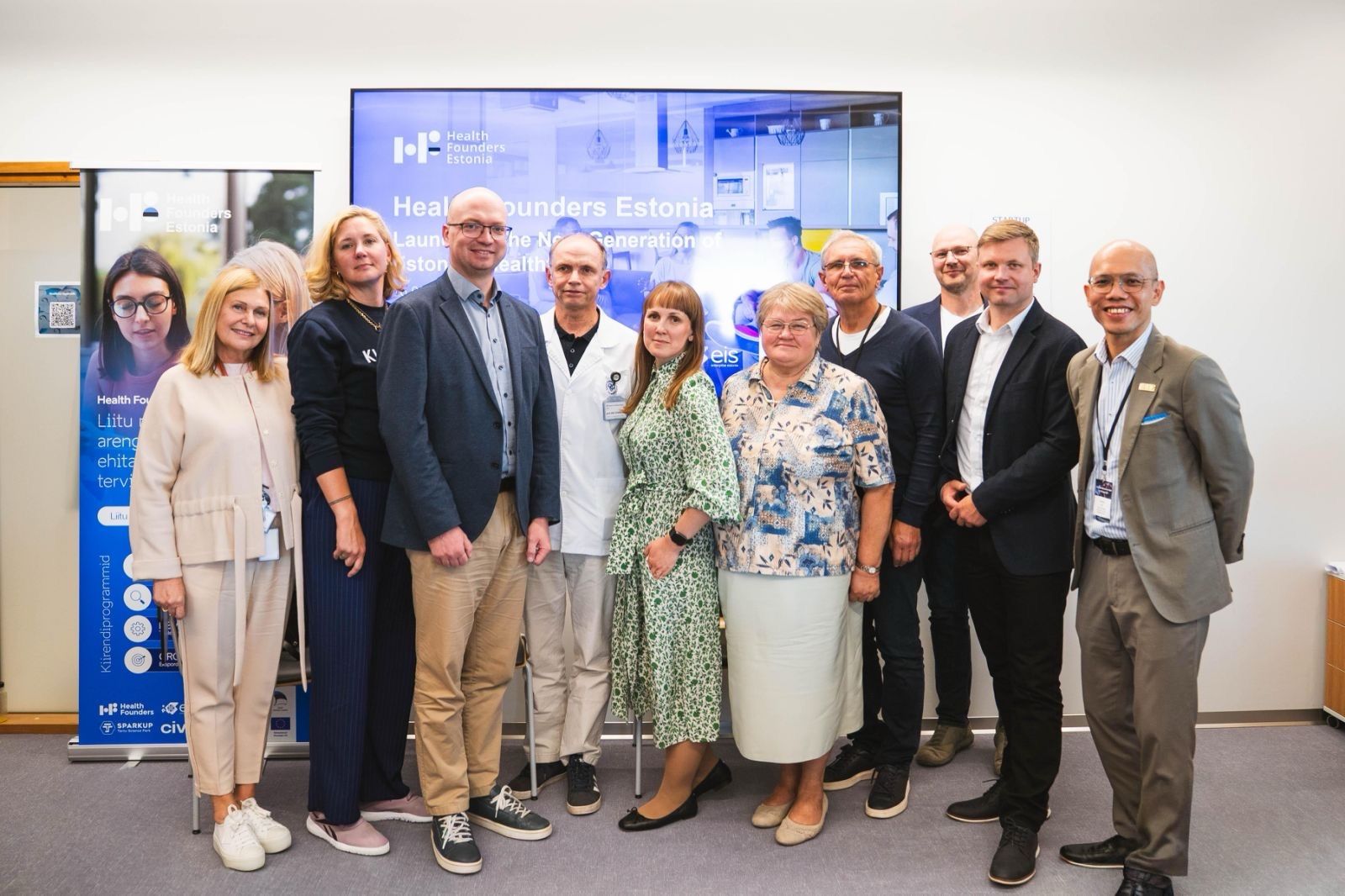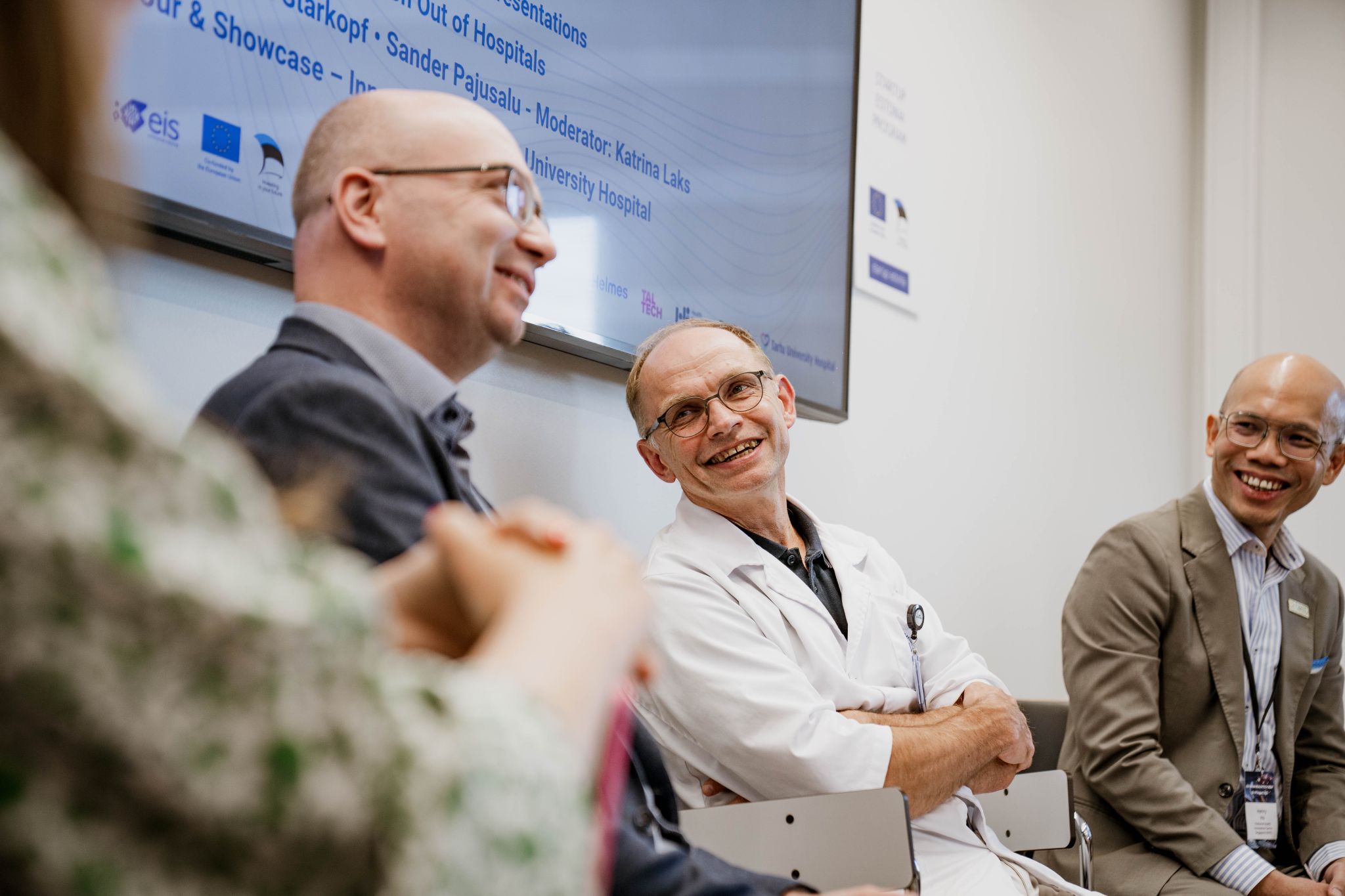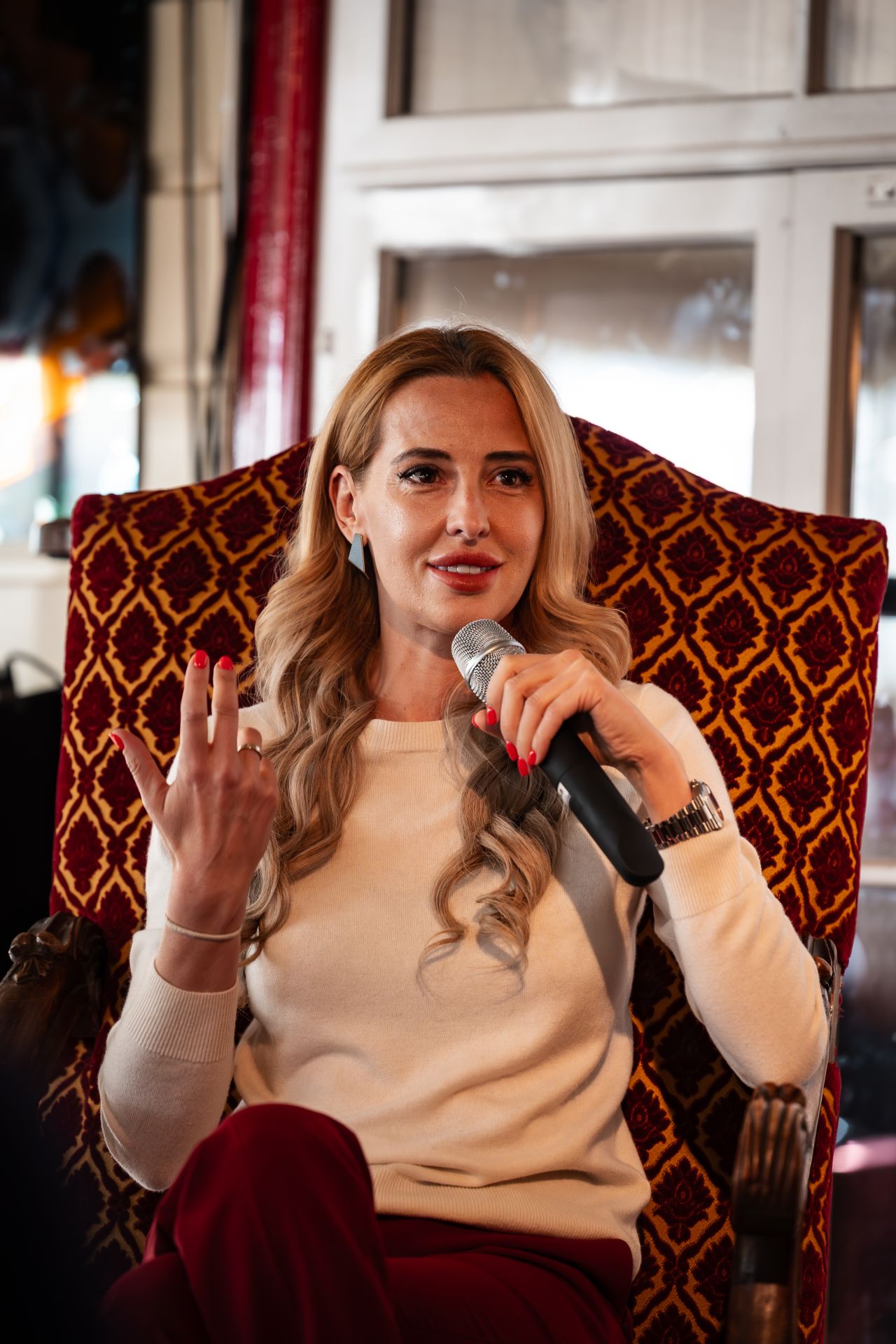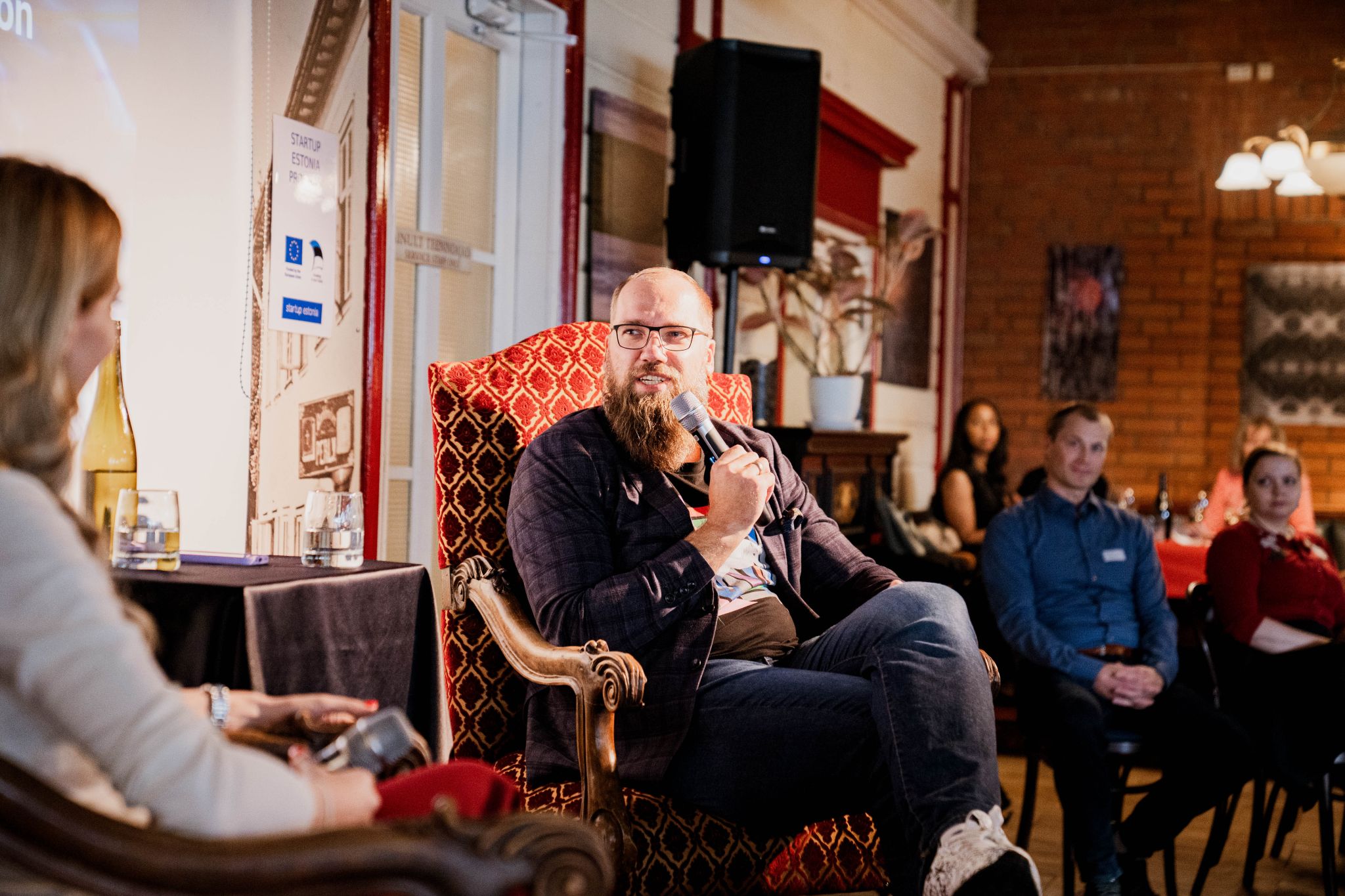Event Recap: Estonian Health Tech Week 2025
On August 26, the Health Founders Estonia team spent a full day in Tartu together with clinicians, entrepreneurs, researchers, and policymakers, immersed in health technology innovation as part of Estonian Health Tech Week 2025. The day began with the Innovation Seminar with Tartu University Hospital and ended with the Deep Tech Pub: Health Tech Edition.
Innovation Seminar with Tartu University Hospital

In collaboration with Tartu University Hospital, we hosted an inspiring seminar that highlighted how hospitals can become true hubs of innovation. The event brought together clinicians, researchers, entrepreneurs, and international partners to exchange ideas on accelerating the development of health technology. We heard thought-provoking insights from Prof. Pilvi Ilves, Dr. Sander Pajusalu, and Siim Saare, as well as stories of inside-out innovation from startups AnESTesia and Vectiopep, both emerging from Tartu University Hospital.
The day ended with a forward-looking panel, “How to Grow Innovation Beyond the Hospital?”, featuring Dr. Henry Ho from NHIC Singapore, Prof. Joel Starkopf, and Dr. Sander Pajusalu, moderated by Katrina Laks (Health Founders Estonia).

Key takeaways:
- Hospitals as innovation hubs: Prof. Joel Starkopf emphasized the importance of creating a culture of innovation at Tartu University Hospital by opening doors to startups and Health Founders initiatives.
- AI in diagnostics: Prof. Pilvi Ilves showcased how AI-driven radiology can accelerate diagnoses and improve treatment outcomes.
- Collaboration is essential: As Siim Saare highlighted, health tech innovation thrives when clinicians, hospitals, ecosystem partners, and companies work hand-in-hand.
- From practice to product: AnESTesia introduced their anesthesia nurse support app, while Vectiopep presented their pioneering work in RNA delivery for cancer immunotherapy.
Deep Tech Pub: Health Tech Edition
In the evening, the conversation continued at Deep Tech Pub, co-hosted with Enterprise Estonia, EstBAN, and Tartu Biotechnology Park. The fireside chat between Jaanika Merilo (Ministry of Social Affairs of Estonia) and Tõnu Esko (University of Tartu) offered an honest look at where Estonian health tech stands today—and what needs to happen next.
Highlights from the discussion:
- From policy to pilots: Estonia’s global reputation as a digital health pioneer is strong, but at home, regulation and EU processes sometimes slow innovation. The challenge is creating fast-track sandboxes where startups can test solutions in real healthcare settings.
- Beyond regulation: The lack of a notified body is often blamed for bottlenecks, but the bigger hurdle comes earlier—proving MVPs and piloting fast enough before startups lose momentum.
- European Health Data Space (EHDS): Centralized data access could be transformative, but only if combined with the right skills and infrastructure. Estonia and Finland are working closely to ensure research access is fair and innovation-friendly.
- Keeping our edge: Genomics, AI, and advanced therapies are costly, but Estonia can stay ahead by providing early-stage testing environments, smarter data access, and cross-border collaboration.
The consensus: Estonia can remain the Northern Star of digital health—but only if we move faster from regulation to real-world testing.

A huge thank you to all partners, speakers, and participants who joined us in Tartu. From the seminar halls of Tartu University Hospital to the lively discussions at Deep Tech Pub, the message was clear: collaboration, speed, and openness are key to making Estonia a global leader in health tech.
The HFE program is funded by the EU through Enterprise Estonia, in collaboration with Startup Estonia, to build a strong, globally competitive health tech ecosystem in Estonia.

